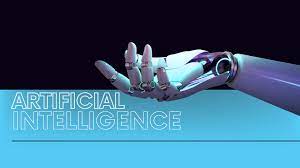In today’s digital age, where consumers are bombarded with countless advertisements and messages, personalized marketing has emerged as a powerful strategy to cut through the noise and connect with customers on a deeper level. Personalized marketing involves tailoring product recommendations, content, and promotions to individual preferences and behaviors. This article explores the significant role that artificial intelligence (AI) plays in personalized marketing, revolutionizing the way businesses engage with their target audience.
Introduction to Personalized Marketing
Personalized marketing is the practice of delivering targeted messages and offerings to specific individuals based on their past interactions, demographics, and preferences. It aims to create a more personalized experience for customers, ultimately leading to higher satisfaction and loyalty.
Evolution of Marketing Strategies
Traditionally, marketing strategies relied on mass communication methods, where the same message was broadcasted to a broad audience. However, with advancements in technology and data analytics, marketers shifted towards personalized approaches to better resonate with their target market.
Understanding AI in Marketing
AI refers to the simulation of human intelligence processes by machines, particularly computer systems. In marketing, AI algorithms analyze vast amounts of data to identify patterns, predict consumer behavior, and automate decision-making processes.
Applications of AI in Personalized Marketing
Customer Segmentation
AI algorithms segment customers into distinct groups based on their preferences, purchase history, and browsing behavior. This segmentation enables marketers to create targeted campaigns tailored to each segment’s specific needs and interests.
Predictive Analytics
AI-powered predictive analytics forecast future trends and consumer behavior, allowing marketers to anticipate their audience’s needs and preferences. By leveraging predictive analytics, businesses can proactively tailor their marketing strategies to meet evolving customer demands.
Content Personalization
AI algorithms personalize content delivery by recommending relevant products, articles, or promotions to individual customers. This personalized approach enhances user experience and increases engagement, leading to higher conversion rates and customer satisfaction.
Advantages of AI in Personalized Marketing
Enhanced Customer Experience
Personalized marketing provides customers with tailored recommendations and content that align with their interests and preferences. This personalized approach enhances the overall customer experience, fostering brand loyalty and positive word-of-mouth.
Improved Customer Engagement
By delivering relevant and timely messages, AI-powered personalized marketing campaigns capture the attention of customers and encourage them to interact with the brand. Increased engagement strengthens the relationship between the brand and its audience, driving repeat purchases and referrals.
Increased Conversion Rates
Personalized marketing strategies, backed by AI algorithms, deliver targeted offers and recommendations that resonate with individual customers, leading to higher conversion rates and revenue generation for businesses.
Challenges in Implementing AI for Personalized Marketing
Despite its numerous benefits, implementing AI for personalized marketing comes with its own set of challenges.
Data Privacy Concerns
Collecting and analyzing customer data raises concerns about privacy and data protection. Marketers must ensure compliance with regulations such as GDPR and prioritize transparency in data collection and usage practices.
Algorithm Bias
AI algorithms may inadvertently perpetuate biases present in the data used for training. Marketers must actively monitor and address algorithmic bias to ensure fair and equitable treatment of all customers.
Skill Gap
Implementing AI-powered marketing strategies requires specialized skills and expertise. Marketers need to invest in training and development programs to bridge the skill gap and effectively leverage AI technologies.
Strategies for Successful Implementation
To overcome these challenges and maximize the benefits of AI in personalized marketing, businesses can adopt the following strategies:
Data Collection and Analysis
Invest in robust data collection and analysis tools to gather actionable insights about customer behavior and preferences.
Transparency and Ethical Practices
Communicate openly with customers about data collection practices and ensure transparency in how their information is used.
Continuous Learning and Adaptation
Stay abreast of advancements in AI technology and continuously refine marketing strategies based on evolving consumer trends and preferences.
Case Studies
Several companies have successfully implemented AI-powered personalized marketing strategies, achieving remarkable results. For example, Amazon’s recommendation engine uses AI algorithms to suggest products based on past purchases and browsing history, resulting in a significant increase in sales and customer satisfaction.
Future Trends
As AI technology continues to evolve, the future of personalized marketing holds exciting possibilities. Innovations such as augmented reality and voice assistants will enable brands to deliver even more immersive and personalized experiences to their customers.
Conclusion
AI has revolutionized personalized marketing, enabling businesses to deliver targeted messages and offerings that resonate with individual customers. By leveraging AI algorithms for customer segmentation, predictive analytics, and content personalization, companies can enhance the customer experience, increase engagement, and drive conversion rates. However, challenges such as data privacy concerns and algorithmic bias must be addressed to ensure ethical and effective implementation of AI in marketing strategies.
FAQs
- How does AI enhance personalization in marketing?
- AI algorithms analyze vast amounts of data to identify patterns and predict consumer behavior, enabling businesses to deliver targeted messages and offerings tailored to individual preferences.
- What are some common challenges in implementing AI for personalized marketing?
- Data privacy concerns, algorithm bias, and the skill gap are common challenges businesses face when implementing AI for personalized marketing.
- How can businesses address algorithmic bias in AI-powered marketing strategies?
- Businesses can address algorithmic bias by regularly monitoring and auditing AI algorithms, ensuring fairness and equity in decision-making processes.
- What role does predictive analytics play in personalized marketing?
- Predictive analytics forecast future trends and consumer behavior, allowing businesses to anticipate their audience’s needs and preferences and tailor marketing strategies accordingly.
- What are some future trends in personalized marketing powered by AI?
- Future trends in personalized marketing include advancements in augmented reality, voice assistants, and immersive experiences that enable brands to deliver even more personalized and engaging content to their customers.

